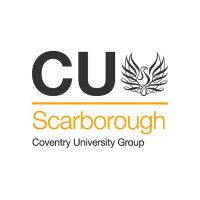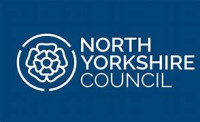
Hello! My name’s Estela and I’m a third-year student at York St John University studying BA English Language and Literature.
Growing up, I always enjoyed English and felt as though it was one of my strongest subjects at school. I’ve also always loved Drama which is very applicable to English! I really enjoyed English at GCSE, which led me to take English Language and English Literature at A-Level alongside Drama and Theatre Studies.
During Year 11 I became interested in becoming a teacher. At the time, Drama was my main interest and so I explored the possibility of becoming a Secondary School Drama, or, Drama and English teacher. Sadly, this was around the time that Arts Education was coming under severe financial strain, resulting in many schools dropping Drama from the syllabus and many arts teachers losing their jobs.
My careers advisor at school was sympathetic to my concern about pursuing a career as a Secondary School Drama teacher during this challenging time for the arts. Consequently, she suggested I do an English degree at university (instead of Drama) because it would give me more options. For example, if I still wanted to become a teacher after university, I could do so with an English degree and could offer to teach Drama as part of this as the two subjects are so closely related. My mind was made up; joint honours English Language and Literature was the subject I would study at university.
As soon as I began my degree, I knew that I had chosen the right subject. In my first year of English Literature, I studied a huge variety of texts; from Old English ‘Beowulf’ to Victorian novels like ‘Jane Eyre’ to contemporary drama like ‘Waiting for Godot’. And what was even better was that, unlike at school, we got to choose the texts we wanted to write about for our assessed assignments. So, if you didn’t like a text, you could just choose to focus on a different one! We also learned about the historical context of the literature we studied which I found interesting because it was something different.
Likewise, I loved my first year of English Language. It proved the perfect contrast to English Literature because the content was more scientific (in a topic like grammar, for example, there is always a right and wrong answer!). Whereas, in literature, there is no wrong answer as it is a more creative discipline. In my first year of English Language I delved straight into linguistics and learned about English from the ground upwards. This was due to the core ‘Grammar’ and ‘Phonetics’ modules which I took in first year. Modules such as these served as the foundations for the rest of my English Language degree at York St John because they facilitated my understanding of more advanced modules like ‘Language Acquisition’ in second year and ‘Accents and Dialects’ in third year.
One of the best things about my English course has to be the inclusion of the work placement module in second year: ‘English at Work’. This really helped me to gain an insight into the career I was interested in (teaching), decide if it was the right fit for me, make contacts and gain experience. I was able to choose where I wanted to complete my placement and was asked to secure it myself with support from my university. The independence required on this module really boosted my confidence in terms of cold-contacting companies and taking my career into my owns hands. I feel as though this has prepared me well for the process of applying for graduate jobs which is a task I will undertake very soon.
Now, as a final year student, my post-university plans look very different to the ones I had in Year 11 (no surprise there really – I think you’ll find it’s the same for most people!). This is the result of an amazing opportunity included as part of the English Language component of my course at York St John. As part of my course, last summer I completed a fully funded CELTA qualification. Subsequently, I am now fully qualified to teach English as a foreign language anywhere in the world. This is what I hope to do after university - teach EFL while living abroad and travelling to different countries. Year 11 me would never have imagined that an English degree could facilitate me doing such a thing, so it just goes to show that you never know where an English degree could take you!
This brings me to my advice for those considering doing an English degree... I think English is a wonderful subject to take at university because of the many options that it gives you; English is used to communicate across all jobs and sectors in the UK so it is relevant to every line of work.
Additionally, don’t be deterred from doing an English degree if you don’t want to become a teacher. I actually know very few people on my course wanting to be teachers – most people are working towards completely different careers! These include: Publishing, Marketing, Business, Forensic Linguistics and Speech and Language Therapy! English is a stepping stone to all of these jobs and more.
Another tip is don’t take English Literature if you love reading but hate studying books – you will need to do both at university!
Finally, if you want to study English, consider taking English Language and Literature together as a joint honour’s degree. Looking back, this was the best decision I could have possibly made when I applied to university. Doing both disciplines expands your career prospects and gives you an advantage over students doing single honours English because you will have a wealth of extra insight.
If you don’t study both language and literature at A-Level, it doesn’t matter! The two disciplines are so interrelated that it’s logical to say that, if you enjoy and are good at one, you will enjoy and be good at the other! I am currently learning Italian as part of my dissertation which I’ve chosen to take in English Language. This is an opportunity that I never would have had if I’d taken single honours English Literature – something I did consider initially due to my interest in Drama. So, there’s a lot to be said for keeping an open mind and choosing a degree like English which serves as a gateway to a plethora of possibilities.
Back to all news stories












